There are many benefits to choosing a plant-based diet, but it can take a little more planning than an omnivorous (plant + animal) diet to make sure you’re getting the full range of essential nutrients.
Protein is often a question mark for those new to plant-based eating. Even if you’ve been going plant-based for a while, you might not be sure how much protein you’re actually getting.
Most people associate this macronutrient with meat, or at least with other animal-based products. But the plant kingdom is also full of protein, although it’s usually a different type than what’s found in meat.
Here’s a brief guide to the plant-based protein world, plus a look at the best plant based proteins out there.
Protein Misconceptions + Meat Protein vs. Plant Protein
One of the biggest misconceptions about choosing a plant-based diet is the belief that non-meat eaters will struggle to consume enough protein.
Much of this is due to the fact that western meals have been centered around a meat protein for many years. Beef, chicken, pork, etc. have been the stars of the show with the rest of the meal being built around them.
Marketing has also played a role in this misconception. Meat products are advertised as being high in protein (which is true) and therefore superior in that respect to plant food.
In fact, the “protein equals meat” myth is so prevalent that one of the most frequent questions vegans and vegetarians get is: “How do you get enough protein?”
The truth of the matter is: There are many excellent sources of plant-based protein.
Research has shown again and again that a meat-free diet can be well-balanced and nutritionally adequate- and lack of protein is rarely a complication. (Other nutrients, like vitamin B-12, can be more of a challenge for certain plant-based eaters.)
That being said, there is a difference between plant protein and animal protein that’s worth going into before moving on to the best plant based proteins list.
Complete vs. Incomplete Protein
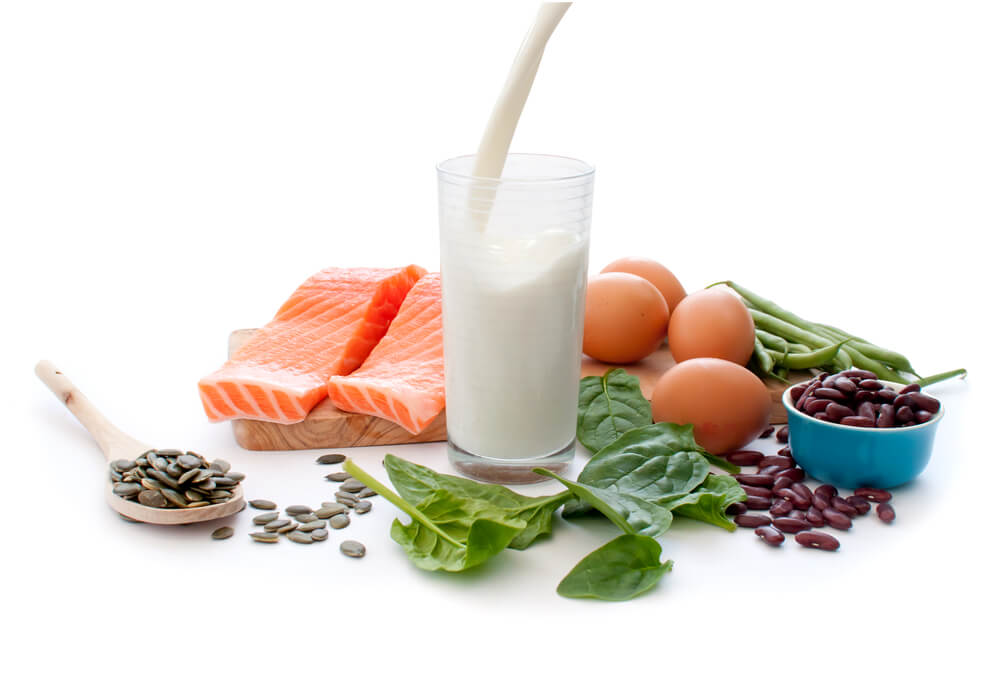
We often think of protein as a single thing: a macronutrient needed for building muscle, metabolism, etc.
However, protein can be broken down into building blocks known as amino acids. There are 20 total amino acids needed by the human body, but only 9 of them are considered ‘essential’ because your body can’t manufacture them. You must get these 9 through your diet.
When you eat a food with protein, your body breaks it down into amino acids and uses each one according to its function. There’s a common misconception that getting enough “complete protein” is difficult or impossible on a plant-based diet, but that couldn’t be farther from the truth.
In fact, studies show that every plant food contains all nine essential amino acids required to create a complete protein. It’s true that some plants are lower than others in certain amino acids, but all you have to do to get all the essential amino acids is to eat a balanced diet that incorporates a variety of types of plant foods.
How Much Protein Do You Really Need?
One last question to address before unveiling the best plant based proteins: What is the recommended daily intake (RDI) for protein?
The answer to this question isn’t as straightforward as it is for vitamin and mineral RDIs. Protein recommendations are based on weight, rather than one standard amount for adults.
The standard minimum protein intake is 0.8 grams per kilogram of body weight (or 0.36 grams per pound). For reference, this means at least 54 grams of protein daily for a 150 lb. person.
Just keep in mind that these guidelines are based on lowest amount needed to maintain health. If you exercise often, for example, you’ll need more protein than the minimum RDI.
Best Plant Based Proteins for a Healthy Diet
Soybeans & Soy Products

Soy-based products are one of the top plant sources for protein.
To start with, soybeans are a complete protein source, which means they contain all nine essential amino acids. They are also at the top for amount of protein, ranging from 8-15 grams per 1/2 cup serving for different types of soy.
Tofu, tempeh, and natto win for the highest proteins choices at 10 grams for tofu and 15 grams for tempeh and natto. Edamame (green, immature soybeans) aren’t far behind with 8.5 grams per 1/2 cup.
Soy products also contain good amounts of iron and calcium. Fermented choices, like tempeh and natto, contain gut-boosting probiotics as well.
One important thing to keep in mind with soy is that soybeans are one of the top GMO crops in the world. Be sure you buy certified non-GMO soy products (and, like all the choices below, certified organic is ideal, too!)
(Regarding other controversies with soy, if you are interested, see this soy blog post over at The Food Revolution Network.)
Lentils
Lentils are a great source of healthy carbohydrates and also contain a really good amount of protein. They pack in about 9 grams per 1/2 cup serving (cooked).
Like soy, lentils are also rich in iron along with folate, potassium, and manganese. They contain a gut-friendly form of fiber, too, which will get you about 50% the RDI of fiber in one cup (cooked).
On top of this, lentils contain antioxidants that promote overall vitality.
Hemp Seeds
Hemp seeds could well be considered a superfood and are one of the best plant based proteins on the planet.
Not only are they a complete protein with all of the essential amino acids, they also contain just under 10 grams of protein in only three tablespoons.
Even better, the protein in hemp seeds is easily digestible. potentially more so than other common plant protein sources. This means your body can easily access and breakdown the amino acids for efficient use.
On top of that, hemp is an incredibly sustainable crop. It thrives even with little water, doesn’t take up much space, and needs no pesticides. What more could you ask for from an edible plant?
Beans (Including Chickpeas)
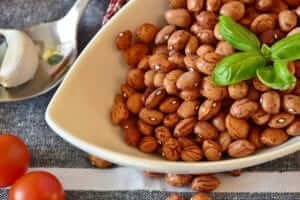
Most types of beans are very high in protein. Black beans, kidney beans, and chickpeas (also known as garbanzo beans) all contain around 7.5 grams per 1/2 cup serving (cooked).
Though no bean is a complete protein source, black beans are rich in lysine, which is an amino acid commonly missing in a vegan diet.
Beans also contain great amounts of fiber, healthy carbs, iron, folate, potassium, phosphorus, and more. Unfortunately, beans have fallen a bit out of favor because of concerns over the presence of lectins that may cause indigestion.
A closer look at the facts reveals that lectins are not exclusive to beans (they are present in nearly all plants) and are found in the highest amounts in raw legumes (including beans).
Cooking, soaking, and sprouting beans all drastically decrease and often completely eliminate lectin content.
(By the way, research also show that lectins can have positive properties, including antioxidant activity.)
Peas
Green peas are often thought of as merely a starchy vegetable, but they also happen to be one of the best plant based proteins. At 4.5 grams per 1/2 cup (cooked), peas aren’t as high in protein as some other plant foods, but they still beat out milk when compared side by side.
Eating a cup of green peas can also get you about 25% of the daily RDI for fiber. They are especially high in vitamins A, C, and K as well as minerals like manganese, magnesium, and iron.
Yellow peas are an even better option than green peas.
They offer a highly digestible form of protein with a very balanced amino acid profile. A cup will give you about 8 grams of protein, which is comparable to green peas, but they can also be turned into a powder that contains 15-20 grams per scoop.
Nuts and Seeds
Many types of nuts and seeds are high in protein. They also frequently contain good amounts of vitamin E, essential minerals, and antioxidants.
Almonds are on top in the nuts category with 14-16 grams per 1/2 cup serving. Pistachios aren’t far behind with about 12.5 grams of protein per 1/2 cup. Pecans, walnuts, hazelnuts, and cashews are also decent options.
Pumpkin seeds are one of the best choices in the seeds category. They have about 6 grams of protein per 1/2 cup and contain all the essential amino acids along with a good amount of magnesium and zinc.
Sunflower seeds are another excellent option. They contain around 5.5 grams of protein in just a one-ounce serving (about 1/4 cup) and are full of vitamin E plus an array of minerals.
Peanuts (and Peanut Butter)
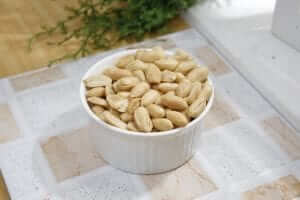
Though often called a nut, peanuts are technically legumes. Whatever you call them, a 1/2 cup serving of peanuts can give you about 10 grams of protein. For peanut butter fans, two tablespoons has about 7 grams of protein.
One downside to peanuts is that they are one of the most common foods to trigger an allergic reaction. (One possible reason for this is the pesticides that regularly get sprayed on peanut crops.)
However, if you aren’t allergic to peanuts, they can be an excellent plant-based protein source, though here it is especially important to choose organic.
Nutritional Yeast
Nutritional yeast is a favorite of those following a vegan diet because of its cheesy flavor. True to its name, this popular seasoning is packed full of nutrients and contains about 8 grams of protein in just 1/4 cup.
Fortified nutritional yeast also contains vitamin B-12, a nutrient sometimes lacking in certain plant-based diets. And you may be surprised to learn that the same 1/4 cup serving has around 4 grams of fiber as well.
Chia Seeds
Like hemp seeds, chia seeds may be small, but they are still one of the best plant based proteins. They contain a complete protein source and check in at around 2 grams per tablespoon.
You’ll also get a good boost of omega-3s, fiber, minerals, and antioxidants from eating chia. The seeds are very easy to sprinkle on food, or you can use them to make a vegan pudding.
Oats
Oats are mostly thought of as a high fiber, high carbohydrate food, but they are also a surprisingly good source of protein. A 1/2 cup serving of oats (dry) provides about 6 grams of protein.
Though they aren’t a complete protein, oats are considered a higher quality plant protein than other grains due to their composition and the inclusion of the amino acid lysine.
Spirulina
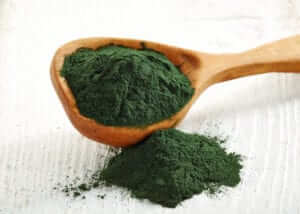
Spirulina is a blue-green algae that’s something of a superfood in its own right. Just two tablespoons of powdered spirulina contains about 8 grams of protein along with several essential minerals, including iron.
There are also many more documented benefits of spirulina. It contains a powerful antioxidant called phycocyanin that may have anti-cancer properties. It can also help your body detox, especially from heavy metals, and may boost immune function as well.
Whole Grains
Whole grains, including wheat, are frequently good sources of protein. To give you an idea, a slice of standard whole grain bread contains around 5-6 grams of protein, plus a healthy amount of fiber.
Grains are rarely complete proteins, but there is some evidence that sprouting grains can increase their amino acid content, particularly lysine. Sprouting also has the added bonus of improving digestibility. Pairing grains with legumes (like peanuts) is a good way to round out their amino acid profile.
If you are allergic or sensitive to gluten, you’ll be happy to know that gluten-free grains are some of the best plant based proteins, too.
Amaranth and quinoa, two ancient grains, both have around 4-4.5 grams of protein per 1/2 cup serving (cooked). Buckwheat (which is actually wheat- and gluten-free) and millet have around 3 grams per 1/2 cup. Teff, a little known gluten-free grain, is even higher with 5.5 grams per 1/2 cup (cooked).
Rice (Especially Wild Rice)
Standard white and brown rice varieties have moderate amounts of protein, but wild rice is by far the best choice as far as protein is concerned. A 1/2 cup serving of wild rice has around 3.5 grams as well as a good amount of fiber.
One very valid concern with consuming rice regularly is arsenic content. Rice crops take up more arsenic than other food crops, in part because they are grown in (sometimes contaminated) water.
Washing rice before cooking and using large amounts of cooking water has been found to significantly cut arsenic content.
(Here is a worthwhile video to watch on “Which Brands and Sources of Rice Have the Least Arsenic” for more info on this topic.)
Sweet Corn
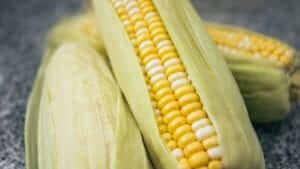
Often thought of as a vegetable, corn is a grain with a fairly decent amount of protein: about 2.7 grams per 1/2 cup (cooked).
Sweet corn has been very controversial as a “healthy” food because of its high starch content (and of course, the corn syrup controversy). However, it is a gluten-free grain with good amounts of fiber and the carotenoids lutein and zeaxanthin.
The biggest problem with corn is that upwards of 90% of corn crops grown in the U.S. are GMO. It’s therefore very important to buy non-GMO and preferably organic corn to avoid the dangers of pesticides and genetic modification.
Certain Fruits and Veggies
Protein is actually present in all fruits and vegetables but usually in small amounts. However, if you’re consuming lots of produce regularly, those amounts can add up.
Vegetables are more likely to be higher in protein than fruits. A few options with about 2-2.5 grams of protein per 1/2 cup include potatoes, sweet potatoes, broccoli, artichokes, spinach, and Brussels sprouts.
Fruits with 1-2 grams of protein per 1/2 cup include bananas, blackberries, nectarines, guava, and mulberries.
TOP RECOMMENDATION: To Make Certain You Get Even More Plant-Based Proteins
Sometimes your protein needs may be more than you can reasonably consume from plant-based food sources.
If that’s the case, you may want to consider adding a protein powder to your diet— but be careful because many on the market contain fillers, preservatives, added flavorings/sweeteners, and even contaminants like heavy metals.
To ensure you are getting top quality, food-derived protein, look into Complement’s Unflavored Organic Protein powder.
This outstanding protein powder is made of only five ingredients— almonds, chia seeds, pumpkin seeds, sunflower seeds, and yellow peas— AND is USDA Certified Organic as well as third-party tested for purity. It has a balanced, complete amino acid profile and is highly digestible, which is very important.
Learn more about Complement Unflavored Organic Protein here to supplement your normal plant-based protein intake as needed.
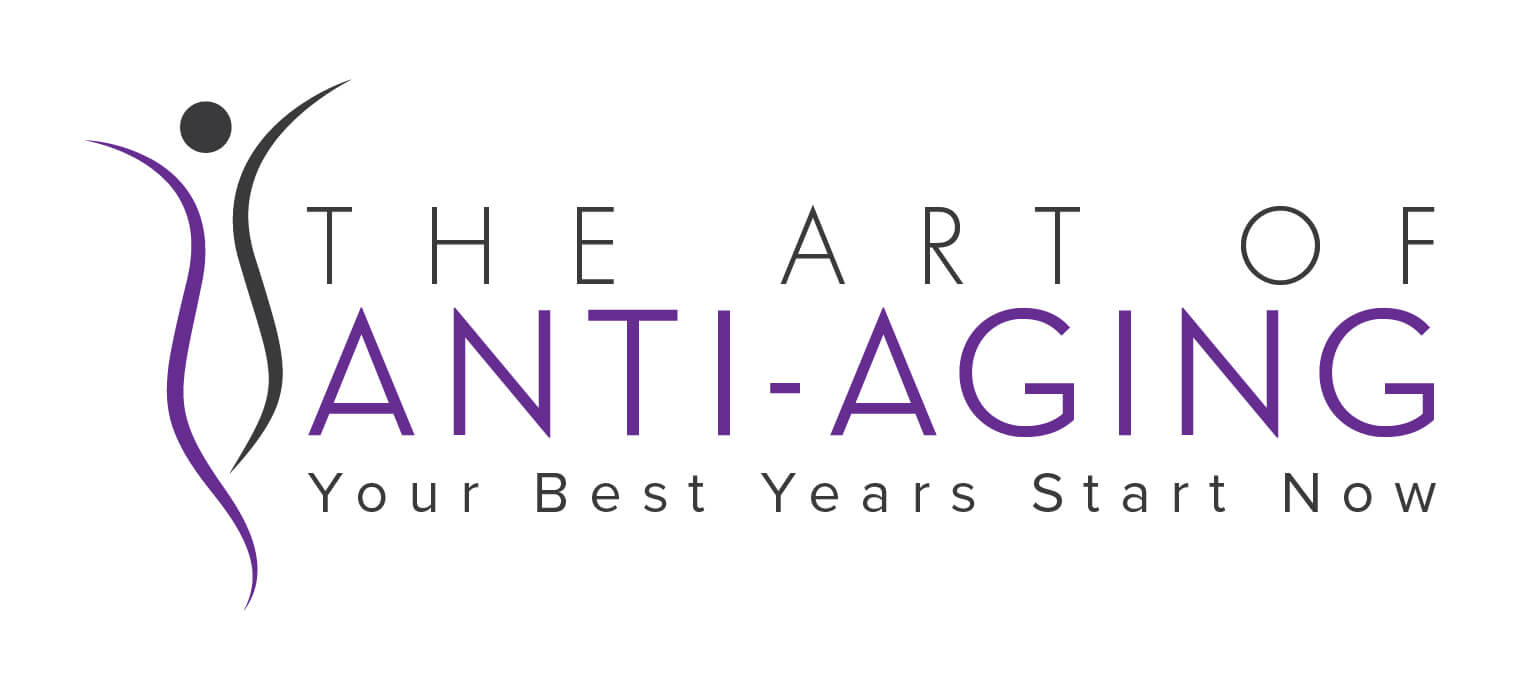
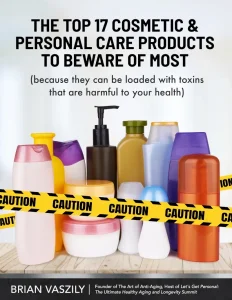
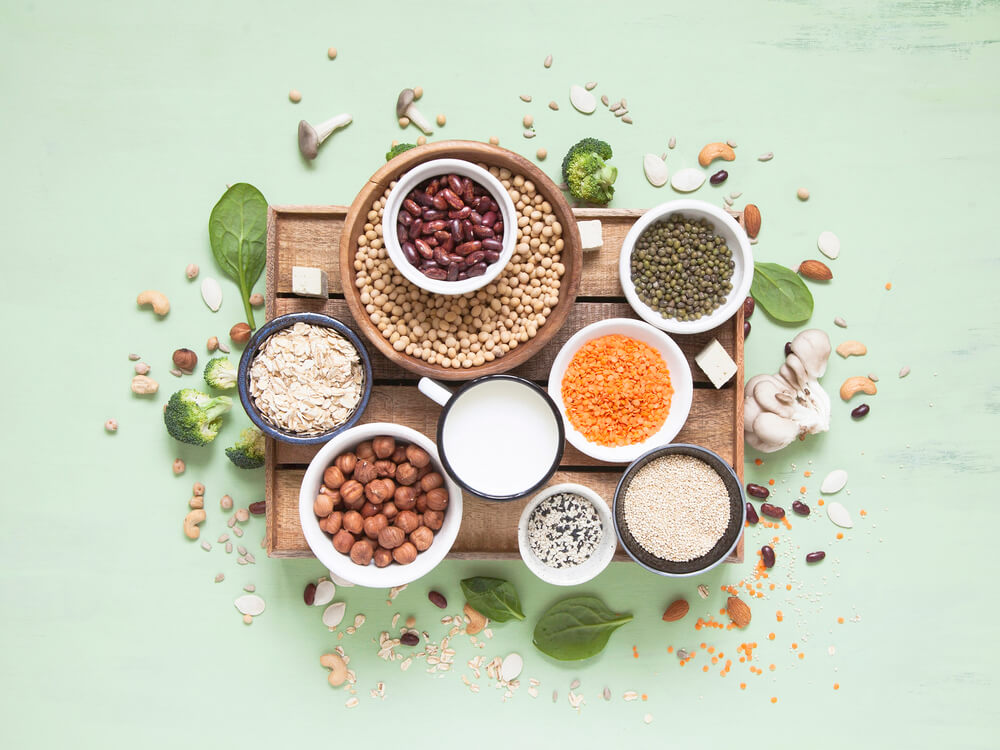
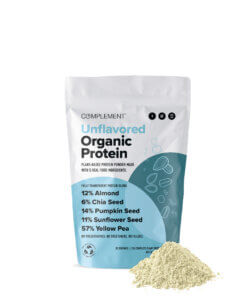
Great article! I drive a truck and am on the road for several days at a time. I want to switch to a plant based diet, but since the truck has a limited area for storage I needed to know what has the most nutrients per serving. Thank you
Thanks for this! So good to be able to read the info, rather than have to watch a 90 minute video! Much appreciated.
Thank you so much for the article. I’m currently having extensive dental work done and I’m pretty much on a liquid diet. Adequate protein is a concern for me. This article helped me a lot.
i also appreciated the readable form.
On an Elimination Diet. Article very helpful at showing me the plants highest in protein.
Thank you
What a relief to be able to read some good information with out being forced to watch a video that you can’t findout if you have seen it before. This is good info and turns out to be e refresher of previous bits of info.
Sprouting chickpeas also cuts down on the cooking time. Maybe other beans too, but I haven’t tried.
Great article; surprised though that there is no mention of cauliflower as low-carbohydrate healthy veggie.
Many vegetables were not mentioned. The focus was protein content, not low carbohydrates.
Many thanks for such an informative article about a very important issue !! Gave me lots of food for thought 😉!!
Thanks for the info on lectins!
I too appreciate the concise article that I can speed read in a few minutes, rather than having to sit through a video or download a book, etc. Thanks for the great info too–didn’t realize that lentils and beans are plant based proteins!
so many tips for maintaining ones health in one site is incredible
Thanks for the informative article about protein.
It is always better to have in readable form so we can revise when needed.
I wonder about how the people 100 years ago, who were strict vegetarian( no eggs or fish) got their B12 and OMEGA
Plz explain this in readable format. 😊
Thank you to you and your staff for helping people.
Thank you for this excellent plant protein article, it was a pleasure reading it rather as pointed out by several people (above comments) that we could read it instead of having to sit and listen to a 60-90 min video. Looking forward to “reading” many educational articles from you in the future.
Thank you for a complete list of plant based proteins I learned a lot about some vegetables that I didn’t know had protein
Brazil nuts are by the way, just as sesame butter, also good to eat with legumes, as that combination completes the amino acid profile.
A comprehensive article, which expresses my findings on my vegan journey of 30 years.
I’ve been eating a plant based food plan for more than a year and this article provided me with more information that I can use in planning my meals.
thank you for the concise written information. I can read it faster than I can listen to a video and then my husband doesn’t have to listen to it. thanks again
Thank you for this well documented and well written article. It is full of precious information about quantities/benefits of eating plant base food. And it is a good reminder of the wide variety to play with…
Thank you so much for this helpful article! We recently went plant based but worried about complete protein sources. This article provides an informative guideline!
Thank you for the informative article and much food for thought for vegetarians. Looking forward to a similar article on Iron and B12. Thank you Kindly
Excellent article. Very informative and Concise
Very informative article!
Appreciate this vital, concise plant-based information. Love the text format enabling effective use of time and allowing quick review of salient points. Valued information for nutient conscious consumers.
Thank you Brian!
Very helpful information!
Best wishes –
Genevieve Forde
Aotearoa
Planet Earth
Thank you for the informative article! I love reading rather than watching those videos that you have no idea how long they are as they have no minute counter, and they repeat themselves about 17 times, and they finally say in 60 minutes what they could have said in less than 15. This whole article was good information, not repetition.
Thanks so much for this great article. It explains protein and amino acids better than other articles I have seen. I keep seeing articles that say you can get complete protein from plants if you eat a variety of plants, but they don’t explain the details as you do. How would you know if you have the right variety? Are grains a requirement? I did not realize there are complete plant proteins like Soy or Hemp Seeds. Thank You for the detailed explanation that is easy to follow!
Excellent article! Learning about how much protein (and how complete the protein is) for the various kinds of plant food was very informative, and I plan to make good use of it going forward.
Thank you so much for this article! It’s great to have all the plant proteins listed in one place with their amounts of protein per serving. It makes planning what to eat so much easier.
Agree with all the thanks for such an informative article. Thank you Brian!
Hi,
I am from Australia…having watched many Masterclasses, I have heard you speak and all I KNOW for sure is I simply TRUST you…if I see your name I want to hear what you have to say…I have been doing Wholefoods Plant based Lifestyle for 3 months and lost over 10 kilos…I guess if I’m honest I am still so very confused with the same Passion and comments from people I have truly believed in for many years who REALLY are convincing with regards to avoiding Grains, how important it is to have Healthy Fats, Avocados, Organic Butter, Ghee, Coconut Oil…( I can see your face now!!) its just so confusing having heard all this other stuff about Lineolic acid, Lectins, bla,bla,bla…I am honestly torn between both incredibly convincing sides…hence I needed to go Wholefoods Plant based & keep Learning as much as I can….Thankyou for all your incredible articles and your Passion, Carol
Thank you, Brian and Team for this very “digestible”😁 piece on protein and related considerations. The best!
Many thanks for this very informative article. Very helpful since I’m leaning more toward a vegetarian diet. God Bless.